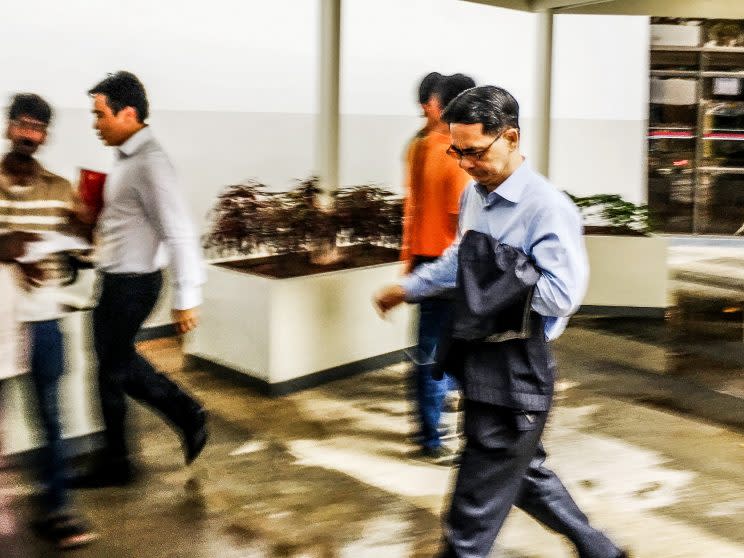SMRT fined $400,000 for safety lapses in Pasir Ris fatal accident

SMRT Trains was fined $400,000 on Tuesday (28 February) for safety lapses that led to the deaths of two trainees in the fatal accident near Pasir Ris MRT station last year.
The train operator pleaded guilty to one charge under the Workplace Safety and Health Act (WHSA) for failing to take necessary measures to ensure the safety and health of its employees at its workplace. It could have been fined up to $500,000 under the WHSA.
In passing his judgement, District Judge Chay Yuen Fatt said that the “culpability on SMRT was high” in the accident on 22 March 2016.
“None of the safety procedures were adhered to and actual practices seemed to have evolved haphazardly over time. As such, safety procedures on paper were unknown to workers,” said Chay.
Trainees Muhammad Asyraf Ahmad Buhari and Nasrulhudin Najumudin were part of a team of 15 SMRT employees who were on the tracks to carry out maintenance works when the two were killed by an incoming train.
Lim Say Heng, an SMRT technician, was leading the 15-men team to investigate a possible signal fault. Lim was charged in December for causing death by a negligent act and his case is still outstanding. If found guilty, he faces a jail term of up to two years, a fine, or both.
DPP: Accident undermined public confidence
Pressing for a fine for at least $400,000, Deputy Public Prosecutor (DPP) Anandan Bala said that for too long, errant companies had paid lip service to providing a safe workplace for its employees and received relatively low fines, which were “a mere slap on the wrist”.
DPP Anandan said in his submissions that as a major public transportation player with over 2.1 million passengers on its trains daily, SMRT has to ensure the safety of both its employees and members of the public.
“The 22 March 2016 incident not only claimed two lives but also resulted in an emergency evacuation of the passengers on the affected train as well as caused significant disruptions to train service that day.
“There was also much public disquiet and discontent in the wake of the incident. There is thus no question that this incident has undermined public confidence in Singapore’s public transportation system,” he said.
Mitigating for SMRT, lawyer Andre Maniam argued that the only valid criticism against SMRT is “its failure to detect deviations in procedures” that were carried out by its employees.
“This is not a case where SMRT did not have documented procedures, or knowingly disregarded its documented procedures,” he said.
Separately, the Ministry of Manpower said Tuesday that SMRT’s non-compliance of approved operating procedures has been happening since as early as 2002, according to an MOM press release cited in a report by the Straits Times.
“SMRT has failed to ensure that procedures practised by employees on the ground were duly audited, documented and disseminated. This resulted in an unsafe workplace that eventually led to the death of two of its employees,” MOM said.
In response to the verdict, Melvin Yong, Tanjong Pagar GRC MP and Executive Secretary of the National Transport Workers’ Union, called on SMRT to seek Union’s and workers’ inputs during the operator’s regular reviews as “ground feedback would better help identify potential gaps in areas of safety”.
— additional reporting by Nigel Chin


